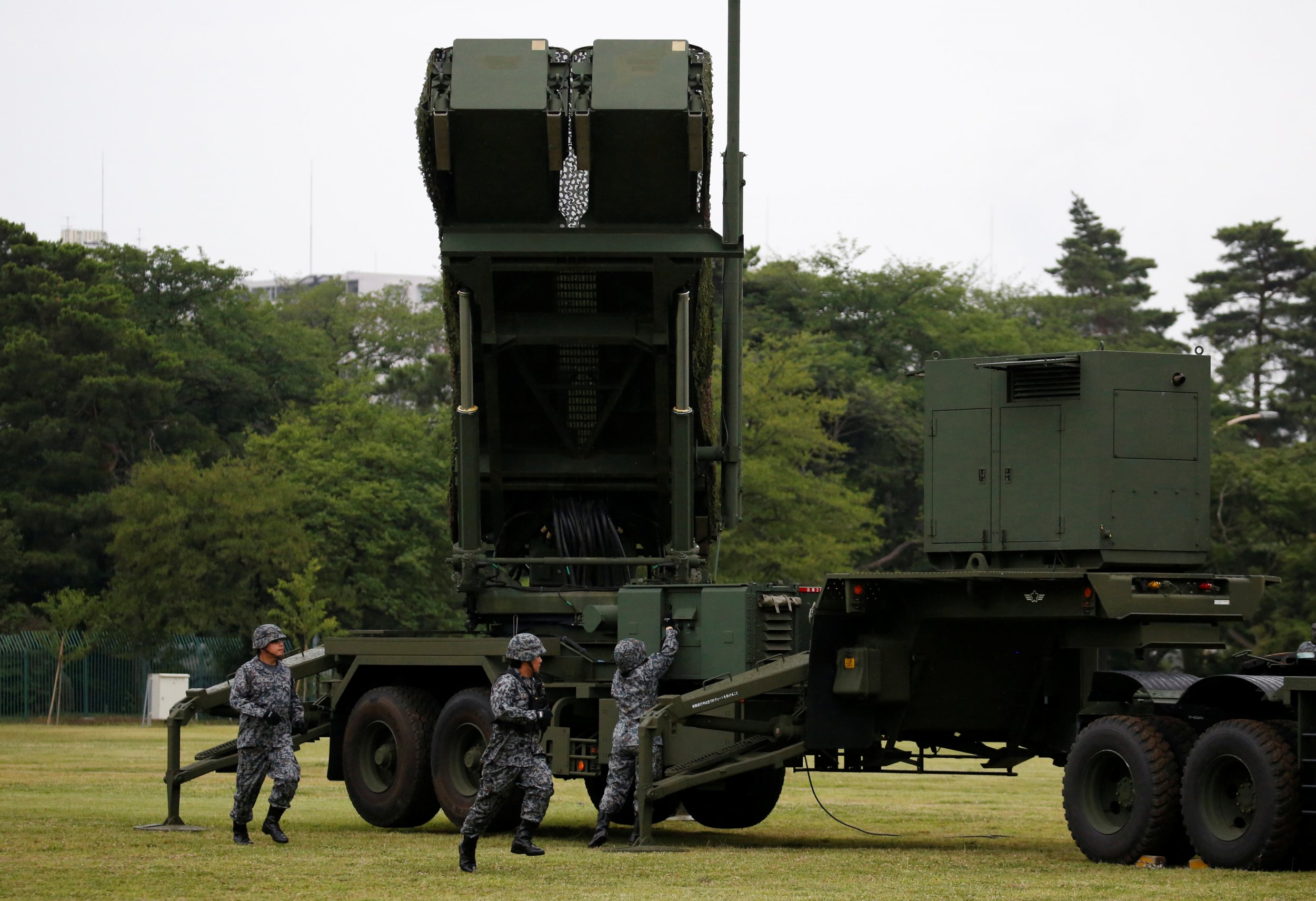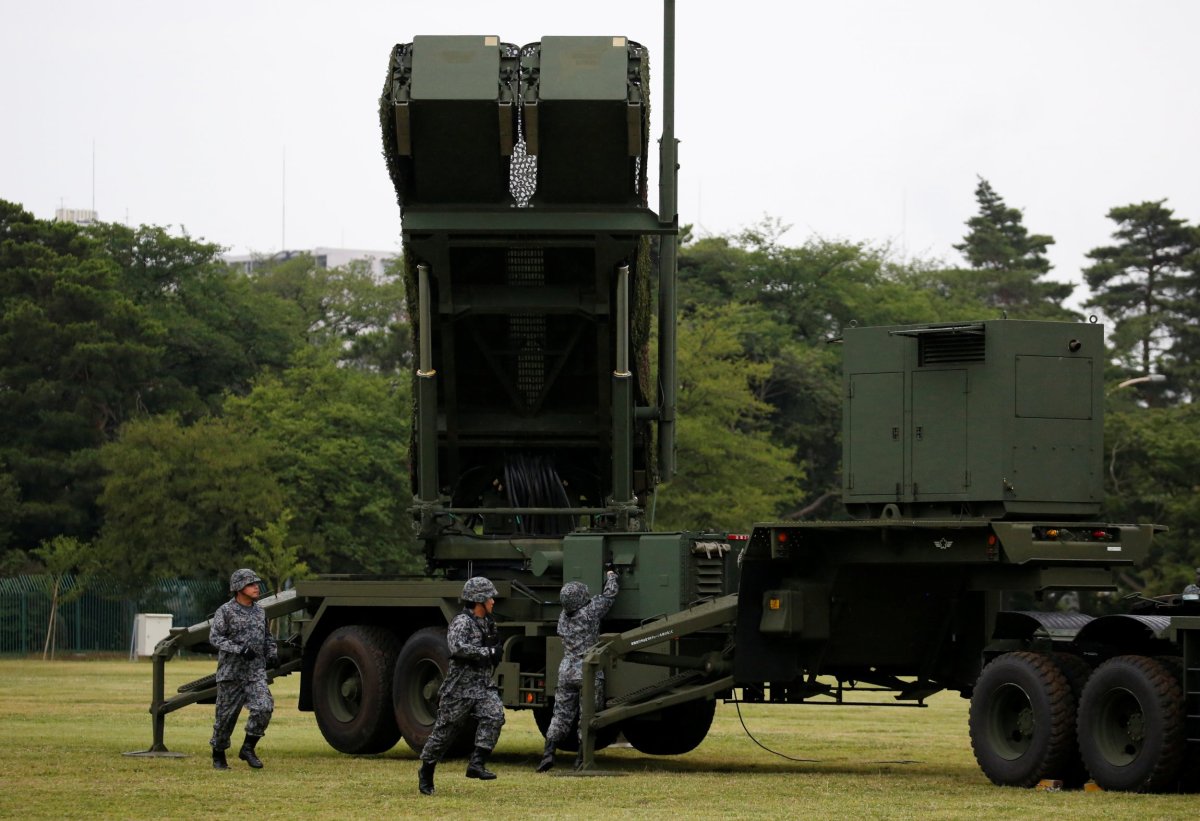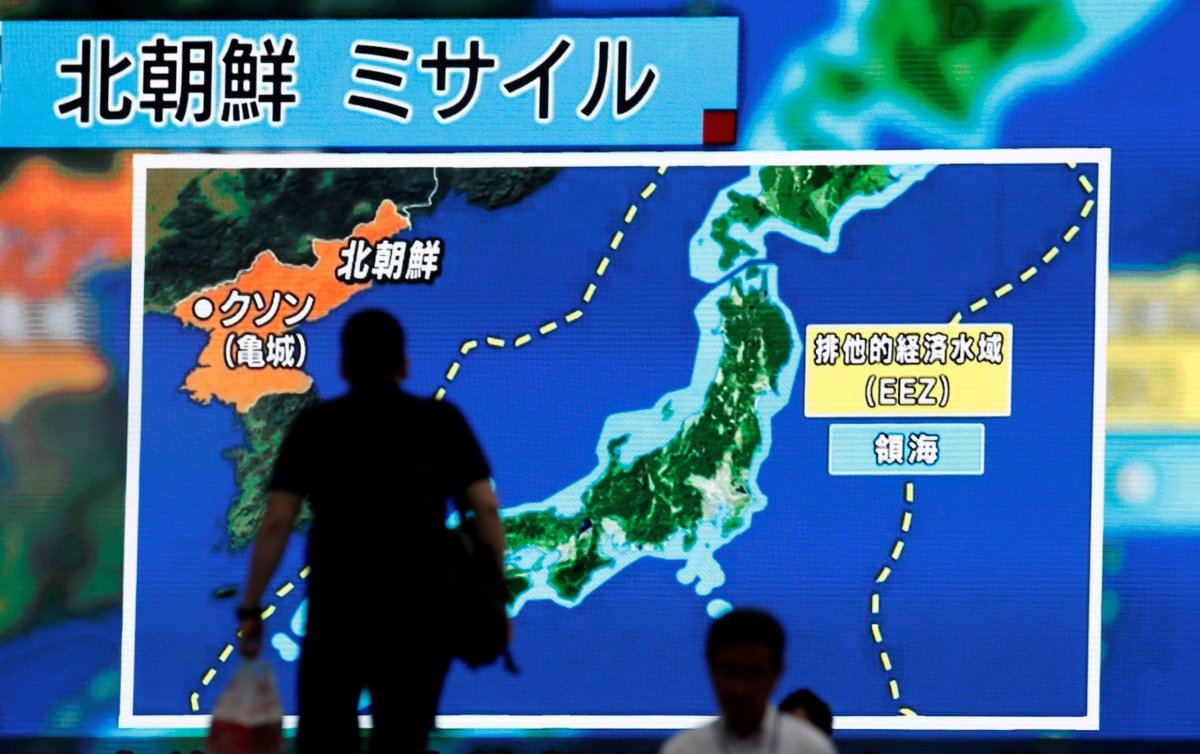
North Korea has condemned Japan for working on behalf of the U.S., which became the first and so far only nation to use nuclear weapons in combat when it destroyed two Japanese cities in August 1945.
Both North Korea and Japan have been the target of bombing campaigns launched by the U.S. military in the past, but the latter has been a staunch U.S. ally since the end of World War II. The conflict led to the division of the Korean Peninsula, which the Japanese empire had previously occupied, and the ultimate creation of rival powers North Korea and South Korea.
Now, nearly three-quarters of a century after U.S. atomic bombs fell on Hiroshima and Nagasaki, killing hundreds of thousands, North Korea's state-run media has accused Tokyo of selling out by backing Washington in its quest to disarm North Korea's nuclear and ballistic weapons arsenal.
"The Japanese reactionaries are making no scruple of joining in the U.S. which dropped A-bombs over Japan and did a great deal of harm to it in the past, and working hard to realize their long-ambition for turning it into a military giant and for overseas militarist aggression by the method of taking advantage of the U.S. hostile policy toward the DPRK and strategy to dominate Asia," wrote the Korean Central News Agency (KCNA). It was referring to North Korea's official diplomatic title: the Democratic People's Republic of Korea.
"But this is no more than action of tiger moths perishing in the flames," it added.

Citing a commentary by the government's Minju Joson newspaper, KCNA further accused Japan of "working hard as a shock brigade and servants for carrying out aggressive war of the U.S. which inflicted painful wounds upon the Japanese people in past."
Japan has long been a critic of North Korea and all three generations of the ruling Kim family. Under Kim Jong Un, who took power after his father's death in 2011, the country managed to expand both its economy and military prowess. Kim's push for greater firepower led to an increase in launches of ballistic missiles, some of which landed in the waters just off of Japan.
Last month, North Korea successfully conducted two intercontinental ballistic missile (ICBM) tests, giving its armed forces a global reach for the first time in the country's history. One of these tests appears to have landed within Japan's Exclusive Economic Zone, while the other may have been intended to come even closer.
These missile launches have contributed to Japan's already well-established concerns about the nuclear-armed communist state, which argues its weapons are necessary to defend itself from hostile powers like the U.S. North Korea was subject to a massive U.S. bombing campaign during the Korean War in the early 1950s, and its leadership has vowed to never allow such an attack to happen again.
As tensions between Kim and President Donald Trump mount, the Japanese Defense Ministry noted Tuesday that North Korea may have already developed the capability to fit nuclear warheads onto its ICBMs, putting not only nearby cities at risk but major U.S. cities, as well.
"It is conceivable that North Korea's nuclear weapons program has already considerably advanced, and it is possible that North Korea has already achieved the miniaturization of nuclear weapons and has acquired nuclear warheads," the ministry said in a statement, according to Reuters.
"Since last year, when it forcibly implemented two nuclear tests and more than 20 ballistic missile launches, the security threats have entered a new stage," it added.

The fear of an attack from North Korea has inspired emergency drills and a surge in nuclear fallout shelter and anti-radiation air purifier purchases in Japan. It's also compelled some Japanese officials to seriously discuss expanding their country's own relatively modest military capabilities, as well as implementing new measures that allow it to strike first in the event of an emerging conflict.
Meanwhile, the U.N. recently passed what is likely to be its most stringent set of economic sanctions against the North Korean government to date, potentially costing the country more than $1 billion. North Korea reacted by pledging "strong follow-up measures" and "severe lessons" for the U.S., which has championed such international measures against North Korea.
Uncommon Knowledge
Newsweek is committed to challenging conventional wisdom and finding connections in the search for common ground.
Newsweek is committed to challenging conventional wisdom and finding connections in the search for common ground.
About the writer
Based in his hometown of Staten Island, New York City, Tom O'Connor is an award-winning Senior Writer of Foreign Policy ... Read more
To read how Newsweek uses AI as a newsroom tool, Click here.








